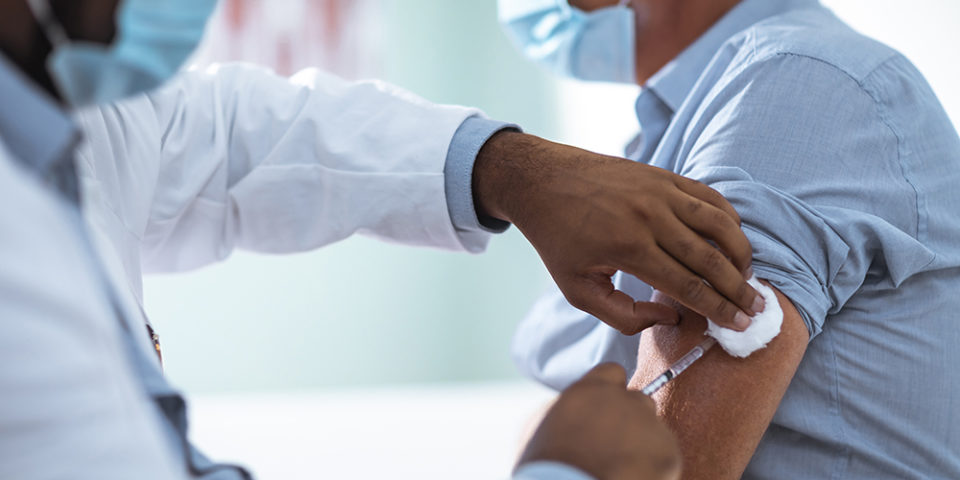COVID-19 vaccine: Questions answered
A safe, effective vaccine for COVID-19 is essential to reducing the number of positive cases, hospitalizations and deaths due to the virus. Jaqui Jones, MD, answered common questions about the COVID-19 vaccine.
How do vaccines get approval?
Vaccines go through three clinical trial phases before being presented to the U.S. Food and Drug Administration (FDA) for approval. All three phases look at the safety and efficacy of the vaccine being tested, while also looking for any concerning affects or issues. By the time phase three rolls around, large numbers of people are being tested – 30,000–45,000 people were part of the phase three trials for both the Pfizer and Moderna vaccine. Half of the phase three groups were given the COVID-19 vaccine and half were given a placebo and tracked for several months.
How was this vaccine created so quickly?
The COVID-19 vaccine is a mRNA vaccine. While this is the first mRNA vaccine to be approved for use, research has been happening on this vaccine platform for decades. When this pandemic occurred, the whole world was brought to its knees. But we had a whole global community of scientists, researchers and physicians who were willing to help. And we had countries offer to pay them to figure it out. So we put all the information that we have learned over the past 30 years, including what we learned about SARS-CoV-1 (COVID-19 is SARS-CoV-2) and came together to make these vaccines, which were released for emergency use. Emergency use means that the science is ongoing. There will be new data and new information, which is why you may feel like there’s something new every day.
How does the vaccine work?
The vaccine causes your body to create the spike protein, which is one of the initial pieces on the surface of the virus that helps the virus get into your cells. Your body will recognize this protein, provided in the vaccine, as being foreign and will create antibodies against it, helping to build up an immune response to COVID-19. This ultimately teaches your body to attack the virus should you be exposed to it in the future, preventing you from getting sick.
Does this mean you’re infecting me with the virus?
There is no virus in the Moderna or Pfizer vaccine. Think of your immune system as an alarm system. We are showing your immune system a little part of the virus that prompts it to react – the outer part. We don’t have to give you the whole virus for it to do that. People can have an immune response to receiving the vaccine, but they’re not getting sick with the virus.
How might my body react to the vaccine?
Data from the clinical trials shows a mild reaction may occur from the vaccine. While not everyone will experience these symptoms, soreness in the arm, fatigue, low grade fever and chills, are possible side effects that can be experienced a day or two after injection. Symptoms are more likely after the second dose and only last about a day.
Should I get the vaccine if I have allergies?
Seasonal allergies are not a problem. If you have an allergy to a medication, we want to know that so we can make a decision about how to get you vaccinated safely. The people we’re concerned about are the ones who’ve had a serious reaction from a vaccine. If you carry an Epipen because you might stop breathing because of an allergy, then you need to have a conversation with your doctor about how you can get the COVID-19 vaccine safely. It can be done, and we can walk through that process together.
Have questions about the COVID-19 vaccine?
Find answers to frequently asked questions about the COVID-19 vaccine, including how to get the shot.


